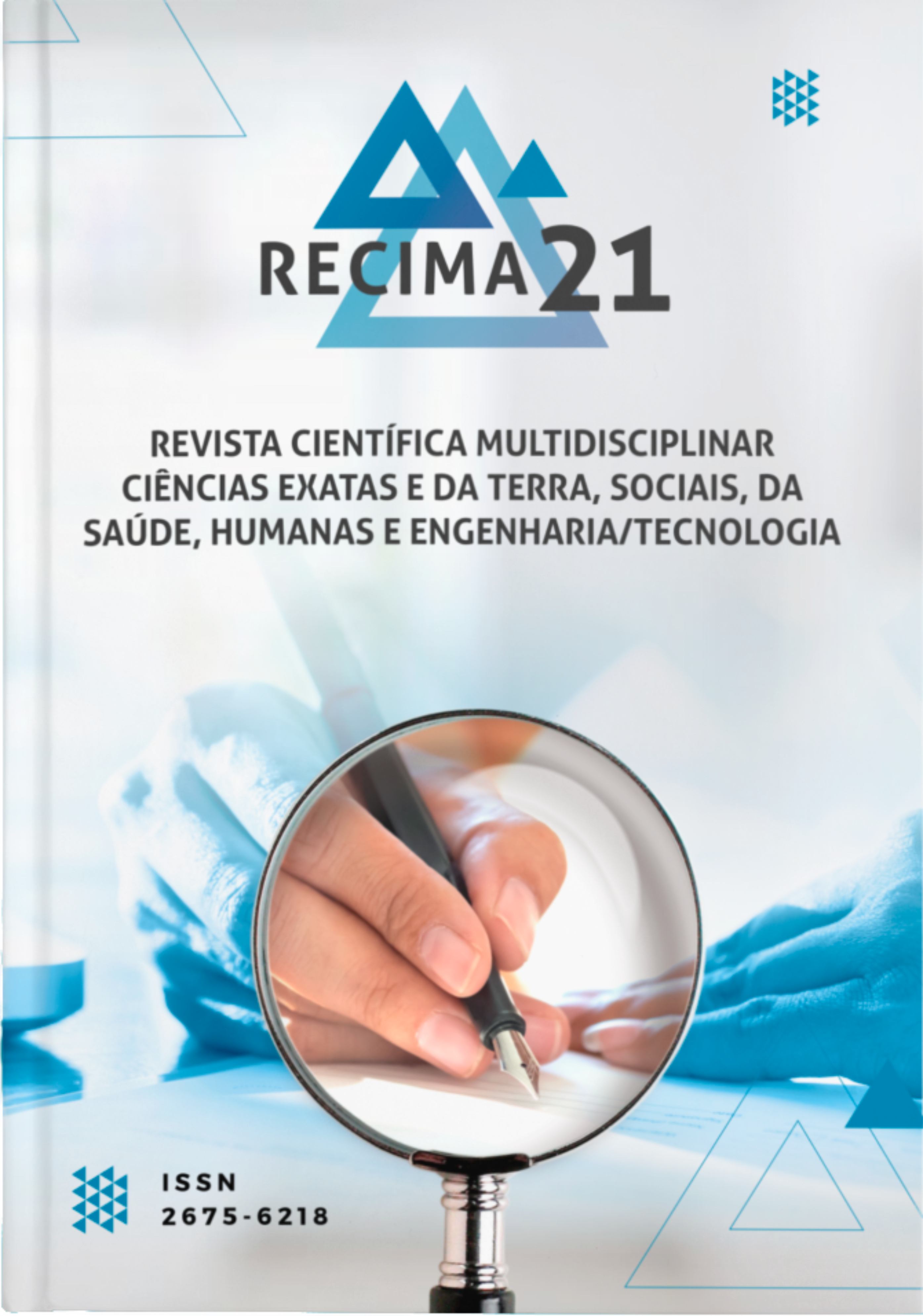EDUCATIONAL TECHNOLOGIES IN THE CONTEXT OF PRIMARY CARE ASSISTANCE: A REFLECTION FROM THE PERSPECTIVE OF PAULO FREIRE
DOI:
https://doi.org/10.47820/recima21.v2i8.644Keywords:
Primary Health Care. Health Technology. Light Technology. Paulo Freire.Abstract
Educational technologies are devices that enable the consideration of the singularities of the subjects involved in the work process. Therefore, it is necessary that health professionals be aware of these technologies in order to improve the quality of the care they provide. The objective was to contribute to critical reflection on the adherence to educational technologies in health care by the multiprofessional team in the context of primary care. It was based on an integrative review, with qualitative subsidy and reflexive bias, when the data were interpreted from the critical view of the researchers and in the light of Paulo Freire's theoretical subsidy about the educative practice. The electronic bibliographic bases LILACS and BDENF were used, accessed through the advanced search in the Virtual Health Library. The inclusion criteria were: primary studies, available in full, published between the years 2017 and 2021, in Portuguese, English and Spanish, and that addressed the theme. Twelve articles were analyzed. It was found that primary care uses some types of light technologies such as: qualified listening, bonding, welcoming, educational actions in health and accountability. In Paulo Freire's reflective approach to inclusive education, which can be achieved through educational technologies that increase the access to health actions offered to the population and induce the integrality of care. In this scenario, the adherence to these tools enables the active participation of the professional as an educator in the learning process, providing the continuous development of the assistance skills of both the patient and the health professionals.
Downloads
References
TEMOTEO et al. Nursing in adherence to treatment of tuberculosis and health technologies in the context of primary care. Escola Anna Nery [online]. v. 23, n. 3, p. 1-9, abril. 2019.
GAMBOA LIZANO et al. Práticas de promoção da saúde no contexto da atenção primária no Brasil e no mundo. APS EM REVISTA, v. 1, n. 1, p. 50-61, 18 mar. 2019.
DE AVIZ LISBOA et al. A importância das tecnologias leves no processo de cuidar na atenção primária em saúde. Textura, v. 10, n. 19, p. 164 - 171, 15 dez. 2017.
MARTINSM et al. Problematização no ensino de gestão em serviços de saúde: experiência de construção de tecnologia de educação. Revista Eletrônica Acervo Saúde, n. 49, p. e3155, 29 mai. 2020.
REZENDE LCM et al. Tecnologia móvel para registros da avaliação clínica de recém-nascidos. Cogitare enferm. v. 21, n. 1, p. 1-8, mar. 2016.
ARELARO et al. Paulo Freire: por uma teoria e práxis transformadora. In: BOTO, C., ed. Clássicos do pensamento pedagógico: olhares entrecruzados [online]. EDUFU Uberlândia. v. 9, pp. 267-292. Agosto.2019.
RIBEIRO GSR et al. Technologies in intensive care: causes of adverse events and implications to nursing. Rev bras enferm. v. 69, n. 5, p. 915-2330. abri.2016.
SOUZA BR et al. Concepção e utilização da tecnologia assistiva por profissionais da área da saúde. Revisbrato. v. 1, n. 3, p. 282-99. mai. 2017.
SOARES et al. Tecnologia Assistiva: revisão de aspectos relacionados ao tema. Rev espacios [Internet]. v.9, n. 3, p. 1-19. mar.2017.
FREIRE, PAULO. Conscientização: Teoria e Prática da Libertação: Uma introdução ao Pensamento de Paulo Freire. São Paulo: Centauro, p. 765. 1980.
BRANT LC et al. Efeitos adversos das tecnologias informacionais e comunicacionais na produção do conhecimento em saúde. Gerais: Revista de Saúde Pública do SUS/MG. v. 2, n. 5, p. 95-104. mar. 2017.
ALMEIDA SRW et al. Computerized nursing process in the Intensive Care Unit: ergonomics and usability. Rev esc enferm USP. v. 50, n. 6, p. 996-1002. Jul. 2016.
PISSAIA LF et al. Tecnologias da informação e comunicação na assistência de enfermagem hospitalar. Rev epidemiol controle infecç [internet]. v.2, n. 9, p,1-22, nov. 2017.
NIETSCHE EA et al. Tecnologias Inovadoras do cuidado em enfermagem. Rev enferm UFSM [Internet]. v. 2, n. 1, p. 182 -9. jan. 2018.
Downloads
Published
Issue
Section
Categories
License
Copyright (c) 2021 RECIMA21 - Revista Científica Multidisciplinar - ISSN 2675-6218

This work is licensed under a Creative Commons Attribution 4.0 International License.
Os direitos autorais dos artigos/resenhas/TCCs publicados pertecem à revista RECIMA21, e seguem o padrão Creative Commons (CC BY 4.0), permitindo a cópia ou reprodução, desde que cite a fonte e respeite os direitos dos autores e contenham menção aos mesmos nos créditos. Toda e qualquer obra publicada na revista, seu conteúdo é de responsabilidade dos autores, cabendo a RECIMA21 apenas ser o veículo de divulgação, seguindo os padrões nacionais e internacionais de publicação.













